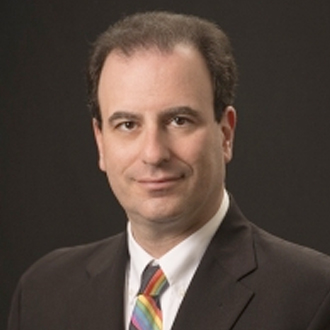During the 1970s, New York Yankees legend Joe DiMaggio encountered singer/songwriter Paul Simon in a Manhattan restaurant. The baseball icon was eager to ask the music superstar about the reference to him in the song “Mrs. Robinson,” where Simon and then-partner Art Garfunkel ruefully proclaimed, “Where have you gone, Joe DiMaggio? A nation turns its lonely eyes to you.”
DiMaggio told Simon, “What I don’t understand, is why you ask where I’ve gone. I just did a Mr. Coffee commercial, I’m a spokesman for the Bowery Savings Bank and I haven’t gone anywhere.” Simon explained that the lyrics were not a literal wondering of DiMaggio’s physical location, but a tribute to an old-school concept of the public hero as a modest individual who epitomized decency, sincerity and maturity.
“He was the antithesis of the iconoclastic, mind-expanding, authority-defying ’60s, which is why I think he suspected a hidden meaning in my lyrics,” Simon would recall in a 1999 New York Times op-ed published after DiMaggio’s death. “The fact that the lines were sincere and that they’ve been embraced over the years as a yearning for heroes and heroism speaks to the subconscious desires of the culture. We need heroes and we search for candidates to be anointed.”
If DiMaggio was too modest to recognize his stature as an American hero, soccer star Megan Rapinoe appears too insistent on being coronated with such honors. In July 2019, when Rapinoe and her teammates were being honored in New York City with a ticker-tape parade after winning the FIFA Women’s World Cup, Rapinoe clutched the trophy, looked squarely into a television news camera and screamed, “I deserve this. I deserve this. Everything.”
Strangely, Rapinoe’s self-congratulatory accolade was fairly sedate compared to the other antics detailed in her recently published autobiography “One Life” (Penguin Random House), cowritten with Emma Brockes, in which Rapinoe runs an exhausting inventory of mirror-gazing praise to her supposed audaciousness and bravery in dealing with the perceived injustices that poison her world. Rather than wait to be anointed as a hero in the DiMaggio manner, Rapinoe has imagined herself to be the hero that today’s America needs.
Heroes, of course, are not born but are made through trials and tribulations. Rapinoe’s problem is that she never experienced these harsh tests to strengthen her resolve. Born into a working-class family in a rural California community, Rapinoe nonetheless enjoyed the harvest sewn through the hard work of earlier generations who fought tirelessly to bring gender equality to college sports scholarships and to ensure LGBT rights were part of the wider society. Rather than show appreciation for those who genuinely struggle in their lives, “One Life” documents a young woman whose sense of entitlement goes awry when people fail to acquiesce to her opinions and demands.
The my-way-or-the-highway attitude is particularly acute when Rapinoe deals with her parents. Recalling how she came out to her mother, Rapinoe initially ridiculed her for failing to guess her orientation and then blew up when her mother did not immediately process the unexpected news. As Rapinoe told her mother: “My whole life makes sense now. I’m f—ing ready to roll, and you can either get on board or get the f— off.”
Later in the book, Rapinoe happily recalls how she refused to speak to her father for six weeks after learning he voted former President Donald J. Trump in the 2016 election — she acknowledges sending him a birthday greeting via text but without emojis or kisses — and then deliberately disrupted a family Christmas gathering to berate him for his politics. This is heroic behavior?
Rapinoe also details her solidarity with Colin Kaepernick’s kneeling during the National Anthem by following his example before her games. While she expresses her concerns and anger over the racial injustice that fueled Kaepernick’s protests, she fails to cite a single example of how she has gone out of her way to help the lives of socially and economically disenfranchised people of color. Breathing the fumes of a limousine liberal is one thing, but applauding narcissism masquerading as activism is another matter.
One area where Rapinoe should take on some degree of heroism is the campaign by the U.S. women’s soccer team in their lawsuit against the U.S. Soccer Federation regarding the pay disparity between male and female soccer players. But when Rapinoe uses her book to boast about pocketing a half-million dollars in a year, signing a Nike sponsorship deal for $80,000 per year and purchasing a gold Rolex for herself, it becomes impossible to view her as a poor little thing struggling to make ends meet.
Whereas DiMaggio was confused over the “Mrs. Robinson” framing of his greatness, “One Life” is peppered with passages in which Rapinoe is baffled when some people don’t affirm her sense of self-worth. She claims to be confused by the behavior of her teammates when she played on France’s Olympique Lyonnais because they didn’t socialize with her after training, adding the celebrated city of Lyon was too boring for her tastes. Many pages are devoted to trash-talking Jill Ellis, the coach of the U.S. women’s team, for failing to share her politics and allegedly lying that other team members found Rapinoe to be a toxic personality.
If there is one brief piece within “One Life” where Rapinoe trespasses into genuine altruism, it involves her creation of a fundraising page on Facebook to help residents in her hometown of Redding, California, who lost their homes in a wildfire. Rapinoe states she raised $150,000 within two weeks, albeit “thanks in part to the generosity of my teammates” — she never mentions her contribution to the cause — but even this effort is spoiled when she erupts in anger when someone on Facebook stated he would not support the effort because of her kneeling during the National Anthem. Again, she makes herself the center of attention and battles against those who are not impressed with her works.
Immodesty is a difficult trick to pull off. Muhammad Ali’s boastful proclamations on being “the greatest” were clearly camp, and the performance art of his public persona was designed to make people laugh. Howard Cosell’s celebrated interviews with Ali felt like a Martin and Lewis routine, with the faux-exasperated sportscaster trying to corral the motormouthed boxer. Rapinoe, however, lacks the underlying humor of Ali, giving the impression of a vain and vapid person.
Perhaps it helps to revisit Paul Simon’s 1999 New York Times op-ed on Joe DiMaggio, especially his closing thoughts on how “we mourn the loss of his grace and dignity, his fierce sense of privacy, his fidelity to the memory of his wife (Marilyn Monroe) and the power of his silence.” Indeed, DiMaggio’s silence will resonate much longer than Rapinoe’s foolish words.





